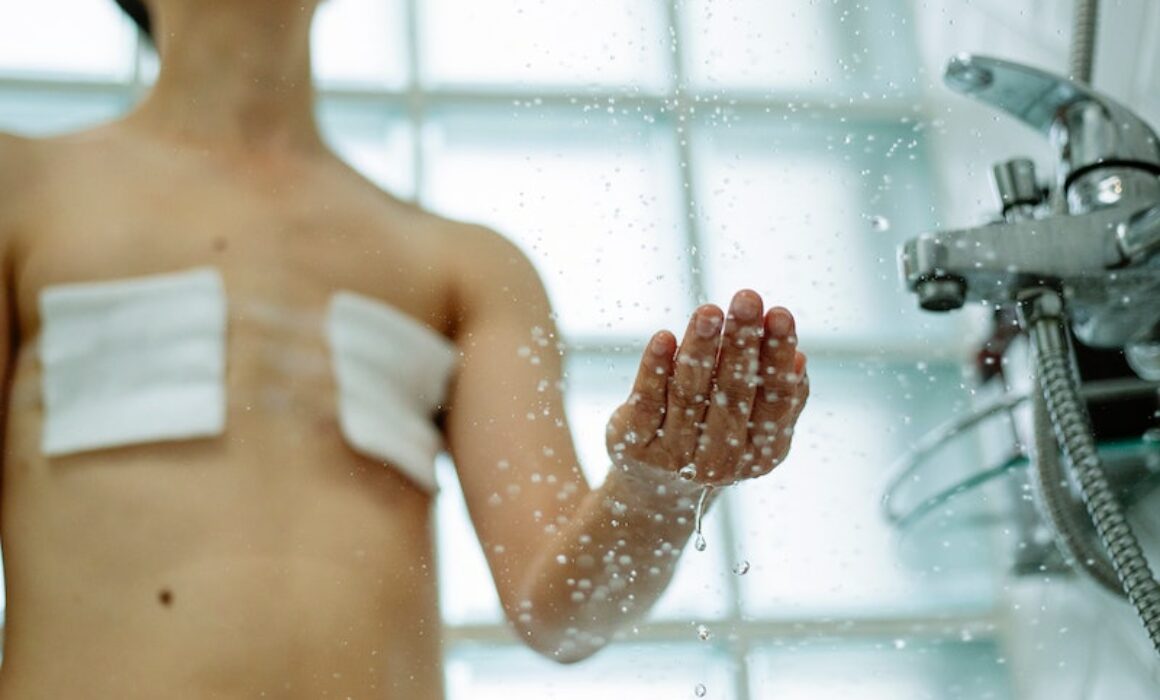
One of the most challenging aspects of breast cancer treatment is the physical changes it can bring about, which can have a profound impact on body image and self-esteem. While cancer treatment often saves lives, it can also result in dramatic physical changes that can be difficult to adjust to. In this article – the ninth of Dr Jane Clark’s series on navigating life after cancer – Dr Clark delves into the emotional and psychological impacts of a changed body after breast cancer treatment. She discusses the common concerns and challenges faced by people who have been through breast cancer treatment, as well as helpful strategies for coping and embracing their bodies.
Dr Clark emphasises that it is not “mere vanity” to be concerned about how you look after breast cancer treatment. Our physical appearance plays a significant role in how we perceive ourselves and how we feel about how others see us. It is perfectly natural to have concerns about changes to your body image, especially when these changes are permanent or visible. Read on for Dr Clark’s insight and advice.
Dealing with a changed body after breast cancer
This article is adapted by Dr Jane Clark from an article originally written by Jane and Dr Peter Harvey. See our introduction for a background on this series of articles.
One of the many possible consequences of treatment for breast cancer is a changed body – either temporary or permanent. Such changes can be very obvious – such as hair loss during chemotherapy, the loss of a breast; less obvious to others – a reconstructed breast, a scar hidden under clothing, or essentially hidden – and internal – removal of a woman’s reproductive organs (for those of you who discover that you carry the BRCA gene and decide to have preventative surgery to minimise the chances of other cancers).
All such changes are likely to affect how you feel about yourself and how you relate to your body and to the outside world. How you react to these changes will depend on a number of factors – how permanent the changes are, how obvious to others, how embarrassing you find them, how important your looks are to you generally – the list is long and individual. But there are some general issues that might be important to deal with here.
It may be helpful to emphasise that whilst much of the research in this area has concerned women, how we look and how we feel about our bodies and ourselves applies to men as well.
It’s not vanity
Firstly, it is not ‘mere vanity’ to be worried about how you look. How we see ourselves and how we feel about how we think others may see us matters. And whilst we may not like it there is a strong tendency these days to be over-concerned with looks – you only need to look on Instagram or scan the covers of the so-called celebrity magazines to see this. So, to be worried about wearing a wig or a headscarf or prosthesis makes sense – it’s about how we see ourselves and about how we present ourselves to the outside world.
How you feel
Secondly, it’s more about what you feel, than about what others say. Your partner may express no concerns about your surgery scars, but if you feel that it is disfiguring then that feeling will over-ride any reassurance that others may offer.
Part of your body not feeling like ‘yours’
Thirdly, some people struggle with the issue of a part of their body not being ‘theirs’. This is fairly obvious when it comes to wearing a wig, however life-like or true to your own hairstyle it is. You are always aware of it, it may be uncomfortable in hot weather, you may worry about it blowing off in a wind or being awry so people notice it – you are never as relaxed with this addition to your head as you will be with your own hair. But what about other additions – a breast prosthesis or reconstruction, for example?
This is more difficult because it may be permanent and, in the case of a reconstruction, part of your body being used to replace the removed tissue. For some women the new breast may not feel as if it is part of them, even if it is a part of their own body that has been used. The changes in sensation may make it even harder to accept that this is part of the body now. It may feel just a little bit unnatural, especially at the beginning. This is not altogether surprising and may be a lot more common than we think – because it may be something that is not talked about very much.
“When I first had my breast reconstruction using an ADM and implant, it felt like I had a beanbag stuck on my chest. I felt like I’d never get used to it. But slowly, without me noticing, my brain seemed to incorporate it into my sense of body. It doesn’t feel like my old breast, but it does feel like part of me now.”

Dealing with feelings of ungratefulness or disappointment
An unwillingness to talk about feeling unhappy with your changed body is sometimes felt to be a sign of feeling ungrateful or over-complaining. After all, a great deal of effort has been put into saving your life by a team of skilled and dedicated professionals. To say that you are somehow dissatisfied suggest that you may be criticising their efforts to help you.
You may also feel that the changes may be a small price to pay to a life-saving intervention – and this is something that you may have been told by others. It is quite possible to feel gratitude for the care you have received at the same time as feeling unhappy about the results. The two are separate issues.
You may well wish that you were not in the position where surgery had been necessary and regret the consequences. You can still be grateful for the skill of the surgeon and the care of the staff in looking after you despite what they had to do.
You can see the process of adapting to a changed body as similar to the process of bereavement. There’s a period of loss and sadness about the change. There may also be anger and other strong feelings. The stages won’t be linear but over time, people generally find that they come to some kind of acceptance of their changed body.
Dr Jane Clark, Consultant Clinical Psychologist
FURTHER INFORMATION
The next article in this series of articles covers post-treatment fatigue and you can read it here 10: Life After Breast Cancer: How to deal with fatigue.
If you’re looking for more support, Future Dreams hold a range of support groups, classes, workshops and events to help you and your carers during your breast cancer diagnosis. These are held both online and in person at the London-based Future Dreams House. To see what’s on offer and to book your place, see here.
To return to the homepage of our Information Hub, click here where you can access more helpful information, practical advice, personal stories and more.
This page was reviewed in April 2024 by the Future Dreams team.
The information and content provided in all guest articles is intended for information and educational purposes only and is not intended to substitute for professional medical advice. It is important that all personalised care decisions should be made by your medical team. Please contact your medical team for advice on anything covered in this article and/or in relation to your personal situation. Please note that unless otherwise stated, Future Dreams has no affiliation to the guest author of this article and he/she/they have not been paid to write this article. There may be alternative options/products/information available which we encourage you to research when making decisions about treatment and support. The content of this article was created by Dr Jane Clark, Consultant Clinical Psychologist and we accept no responsibility for the accuracy or otherwise of the contents of this article.
©️ 2023 Jane Clark and Peter Harvey. With quotes from the creators of the Ticking off Breast Cancer website (now Future Dreams Information Hub). All rights reserved.
Share

Support awareness research
Donate to those touched by BREAST cancer
Sylvie and Danielle began Future Dreams with just £100 in 2008. They believed nobody should face breast cancer alone. Their legacy lives on in Future Dreams House. We couldn’t continue to fund support services for those touched by breast cancer, raise awareness of breast cancer and promote early diagnosis and advance research into secondary breast cancer without your help. Please consider partnering with us or making a donation.



